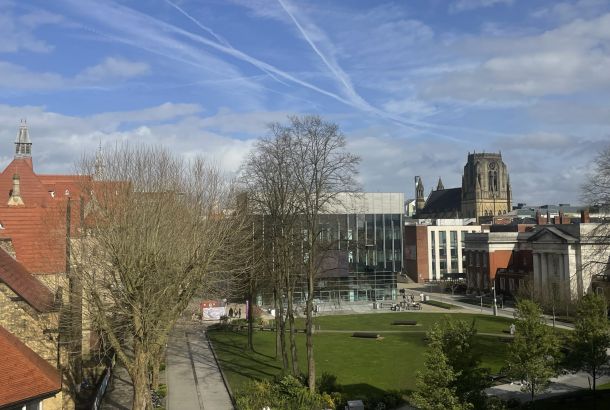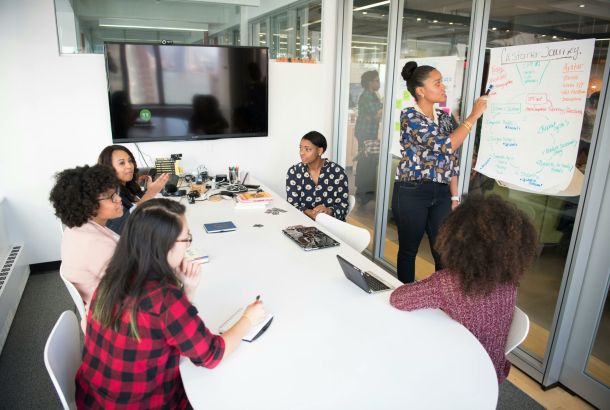
In the new digital age, the future of sex work has been considerably redefined. Users of sites such as OnlyFans and AdmireMe.VIP pay tax, national insurance, and work hard just like anyone in a ‘conventional’ job. The difference is that creators can take ownership of their content, control their salary, working conditions; things that normally are controlled and determined by someone else.
So, what is OnlyFans? Any avid Twitter user will be familiar with the term by now, but what does being a member of the site actually entail? The idea is that content creators post pictures and videos with a monthly subscription fee required in order for viewers to access a feed. Users set their own subscription fees and decide the nature of the content – but it is the more explicit and uncensored users that have attracted the most money, and also the most criticism.
Urban Dictionary describes OnlyFans as “a website where one can sell their nudes in an attempt to escape their retail job.” This gross misconception exemplifies the confusion between online sex work and social media reception. As users are usually inclined to promote their business through social media in order to gain subscribers, the two are unavoidably intertwined, and there are certain inimical myths proliferated in the ‘Twittersphere’ that are important to debunk.
By no means am I implying that online sex workers should concern themselves with the opinions of online haters and trolls, nor do they owe it to anyone to explain or rationalise the nature of their work. I do think, however, it is fundamental to destigmatise the use of adult sites in the name of general societal progression, and that can only result from open discussion.
For some perspective, I conducted a corpus analysis of tweets about OnlyFans, arguably the most prominent and topical of the platforms available right now. The words ‘hoe’, ‘thot’ and ‘bitch’ appear statistically significantly more in the tweets about OnlyFans compared with a corpus of general online discussion. The word ‘hoe’ appears in the corpus 493 times per million words. The word ‘bitch’ occurs in the corpus 1,506 times per million words. These are uncomfortably high frequencies. The stark contrast in the results between instances of positive vocabulary and derogatory, objectifying vocabulary would be obvious to any layperson.
Of course, men can and do also use such adult sites, but it would feel erroneous of me to discuss this online environment of hostility as stemming from anything other than age-old misogyny and a lack of appreciation for, or even a fear of, female liberation. And it’s not just men – the amount of internalised misogyny clearly at play from women is quite saddening.
There’s nothing out of the ordinary about traditional online porn – it’s an established, completely legal industry, used by millions every day without a second thought. Why, then, when women are given the opportunity to make a killing on their own terms, with their own rules, hours, creating only content that they feel safe and happy producing for customers they are satisfied taking money from, do many people feel so differently? To women, sex and sex appeal can be sacred or it can be a commodity – or it can be both, or neither. And how it’s used by one person doesn’t need to have anything to do with the next person, because only they own it, so treat everyone’s grind with respect and an open mind. These women are making thousands, in some cases, millions, whilst also emanating with pride in their bodies and sexualities, and I think that threatens men.
One user of AdmireMe.VIP, Ruby (@rubexcubex on Twitter), gave me some insight into her life as an established online sex worker and helped me myth-bust some of the most prevalent presumptions about life in that line of work.
In terms of online sex work being an ‘easy’ way out, Ruby said that it’s definitely not: “you have to be able to promote yourself, sell yourself in a way that sets you apart from everyone else…it takes a lot of hard and consistent work to maintain a good sustainable income” – which is now almost three times the salary of her previous job. She said you need thick skin in the industry, telling me “it has affected my relationships with a few people, but anyone who isn’t supportive I don’t keep in my life. In terms of critics, I always say unless it’s actually impacting your business then ignore it”.
People often don’t understand the appeal with these sites as porn is free and accessible, but it is the more interactive, personal aspect between the customer and creator that makes the concept so enticing, and the job so demanding. Ruby told me: “I deal with difficult customers hourly, I get called all sorts of nasty things and people are always expecting me to be available to them 24/7 and forget I actually have a life.”
The pros surely outweigh the cons, though, as Ruby said, “it’s a very rewarding and freeing job – I’ve met some lovely people, I have all my own time to myself and I’ve been able to take holidays and trips I’d never have been able to in my retail job”. Is it sustainable? She said, “it’s definitely a long term thing for me…I decided to do it because I was already comfortable with my body, and why do something you’re good at for free?”
Very well said. Women and men should step back and take a minute to recognise this new phenomenon as a step in the right direction for womankind, instead of an opportunity to tear women down in an attempt to project overly moralistic representations of themselves.







